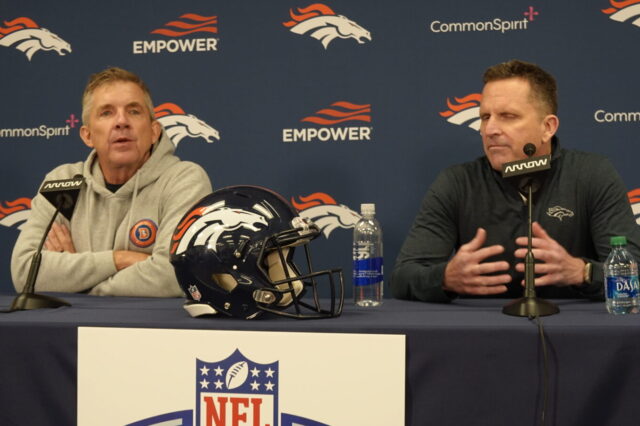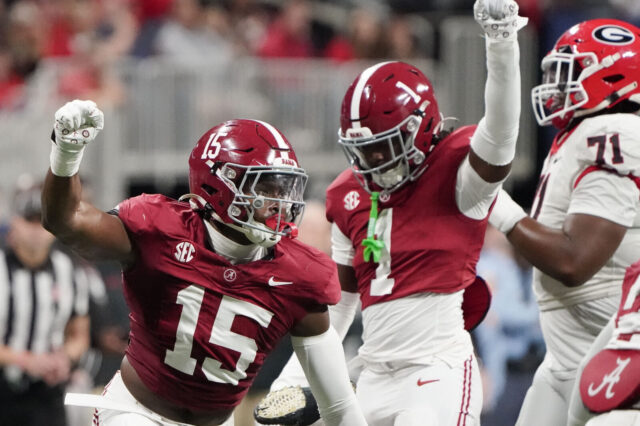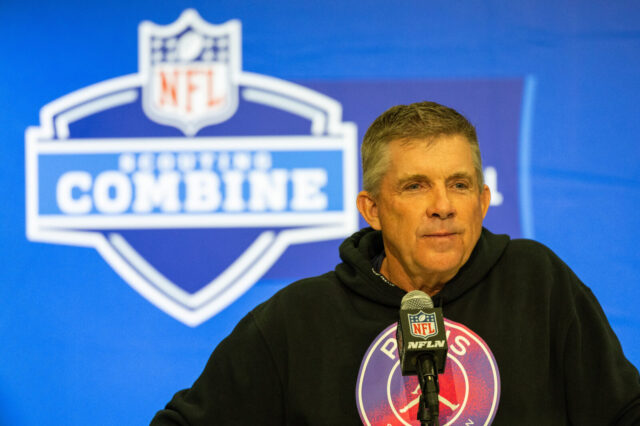Satisfaction is the death of desire. In the NFL, it can also be the difference between a Super Bowl title and an early start to your offseason.
Many people are often lauding the Denver Broncos defense, and rightfully so; but as the Broncos proved last year, the same formula doesn’t always work year in and year out. You have to find a balance between holding onto what you do well, and working on the things you don’t.
The same thing can be said about players. The league will eventually grow wise to your tricks. This especially holds true with those that are on the bubble. Unless you are an elite talent, you must adapt lest you fall victim to football Darwinism and find yourself without a job.
Perhaps no player embodies this theory better than current Atlanta Falcon and former Denver Bronco Ben Garland. Garland signed with the Broncos as a college free agent, only to have his career delayed due to a commitment to the Air Force. When he finally joined the Broncos, he started as a defensive lineman, before switching to the offensive side of the ball.
Garland was released among the final cuts for the Broncos prior to the 2015 season. Four days after being sent packing by Denver, the Falcons signed him to their practice squad. Three months later, he was signed to the active roster; and there he has remained.
Garland will play in the Super Bowl on Sunday. The biggest reason why? His versatility.
This season, Garland has been somewhat of a Swiss Army knife for the Falcons. In this campaign alone, he has played on the offensive line (including center), the defensive line, on special teams, as a tight end and as a fullback. Like a chameleon, he becomes whatever his team needs him to be.
“Shoot, you could have me as a punter, quarterback or safety and I wouldn’t care, so long as I can get out there,” Garland told the Denver Post recently.
People finally noticed Garland during the Falcons’ postseason run, when he sacked Russell Wilson for a safety in the divisional round. What they don’t see is him studying both the offensive and defensive playbooks; preparing to play anywhere, anytime he is called upon.
Perhaps general manager John Elway and the Broncos can learn something from Garland.
The first few years of the Peyton Manning era in Denver saw the offense carry the heavy load. In 2013, they were scoring at a record pace; flying high all the way to the Super Bowl, when they were quickly brought crashing back down to Earth by the Seattle Seahawks.
Prior to the 2014 season, they brought in DeMarcus Ware and Aqib Talib to address their defensive deficiencies, but when it mattered most, they still fell short. In the divisional round, their vanilla scheme allowed Andrew Luck to come back and beat them at home.
In the 2015 offseason, Elway decided that the problem might not have been with personnel, but instead with his staff. Out were John Fox and Jack Del Rio, in was Gary Kubiak and Wade Phillips, and it worked.
In the 2015 season, the Broncos rode Von Miller and their dominant defense to a Super Bowl 50 victory. Their offense wasn’t always pretty, but they kept on winning. They tried same formula for 2016, and by their own lofty standards, they failed miserably.
Sure, the offense took a step back, averaging 32 less yards and 1.4 less points per game, but is that really the difference between a Super Bowl and failing to make the playoffs?
The real reason the Broncos took a step back last season was simply a failure to adjust. They lost Malik Jackson and Danny Trevathan, and suddenly they were weaker against the run. The didn’t retain Evan Mathis and Louis Vasquez, and suddenly their offensive line went from marginal to downright awful.
Including the staff changes that have already happened and the personnel decisions that are yet to come, this offseason will see significant turnover for the Broncos. This is where they need to take a page from Garland.
No, I am not talking about his whatever-it-takes mentality, though finding players who possess that couldn’t hurt. I am talking about a willingness to adapt, to adjust, on the fly. More importantly, John Elway needs to learn to study both playbooks.
The Elway era has seen plenty of success, but it has also seen teams that were largely carried by one side of the ball. When a deficiency was exposed on one side, he would go all-in fixing it, changing the identity of the team in the process.
For the Broncos to compete for World Championships, not just for the next year or two, but well into the future, their identity should mirror that of Ben Garland – well-versed on both sides of the ball, willing to grind, willing to do whatever it takes to win.



